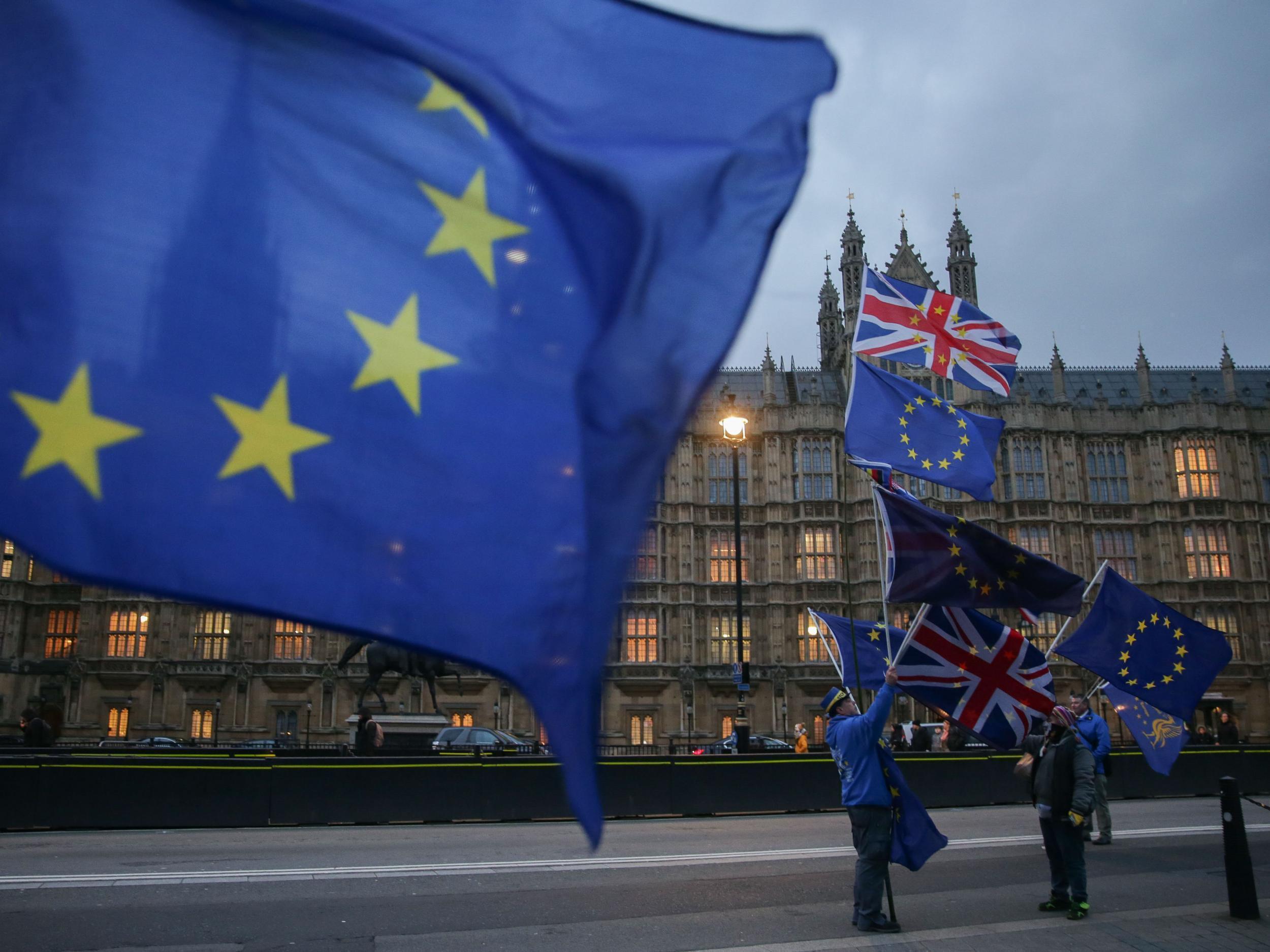Your support helps us to tell the story
From reproductive rights to climate change to Big Tech, The Independent is on the ground when the story is developing. Whether it's investigating the financials of Elon Musk's pro-Trump PAC or producing our latest documentary, 'The A Word', which shines a light on the American women fighting for reproductive rights, we know how important it is to parse out the facts from the messaging.
At such a critical moment in US history, we need reporters on the ground. Your donation allows us to keep sending journalists to speak to both sides of the story.
The Independent is trusted by Americans across the entire political spectrum. And unlike many other quality news outlets, we choose not to lock Americans out of our reporting and analysis with paywalls. We believe quality journalism should be available to everyone, paid for by those who can afford it.
Your support makes all the difference.Whether Britain should stay in the EU’s customs union, has become the issue now levering Britain’s Brexit divisions open.
Staying in is the only thing that guarantees the tariff-free trade the UK currently enjoys, but both the Conservatives and Labour have ruled that out.
Leaving it, on the other hand, would guarantee the ability to agree new free-trade agreements with other nations.
But what arrangements with the EU would come instead of it, is not something any party wants to spell out.
In fact leaders in both main parties seem happy with a degree of ambiguity, vaguely talking about “a” – not “the” – customs union, “a partnership” or simply “arrangements”.
For its part, the EU has made clear anything other full involvement in “the” customs union means increased barriers to trade.
Here The Independent takes the temperature from key figures in the debate…
Prime Minster Theresa May
Her spokesman said: “The Government’s position was set out in a future partnership paper on the customs union.
“We will be leaving the EU and the customs union and it is not the Government’s policy to be members of ‘the’ customs union or ‘a’ customs union.
“That paper in August set out two possible options and they are a highly streamlined customs arrangement and a new customs partnership with the EU.”
Jacob Rees-Mogg, Conservative MP
“In leaving the European Union we must free ourselves from the Common External Tariff which protects inefficient Continental producers on the backs of the poorest UK consumers.”
Dominic Grieve, Conservative MP
“Tariff-free trade with our European Union partners and its maintenance is much more important than potential tariff-free arrangements with non EU countries.
“It will always, in my view, deliver a better economic boost to this country.
“The Government will look to maintain tariff-free access and do its own thing elsewhere. That’s a delicious ideal, but it may not be feasible.”
Matthew Elliott, former Chief Executive of Vote Leave
“When 17.4 million people voted Leave in 2016, they were voting to Leave the EU's custom's union, because a big part of Vote Leave's pitch was about taking back control of trade policy.
“The UK will not be able to negotiate trade deals if it remains in 'the' customs union, or even if it forms 'a' customs union with the EU.
“As a service orientated economy, the EU's tariff schedule does not suit the UK economy, because EU trade policy is focused on countries more reliant on agriculture and manufacturing. This means that UK consumers lose out by effectively paying higher tariffs (taxes) on the goods they buy.
“The UK needs to negotiate a fully comprehensive, highly liberalising trade deal with the EU, starting from a point of complete alignment but moving in a direction of mutual recognition of regulatory structures.
“Almost 98 per cent of goods entering the EU from the rest of the world are not inspected at the border, so a UK-EU trade deal is compatible with maintaining a frictionless border between Northern Ireland and the Republic.”
Chuka Umunna, Labour MP
“I have consistently called for the Labour frontbench to adopt a clearer position against this extremism and the unfolding Tory Brexit catastrophe by, at the very least, committing to ensure the UK continues to participate in the EU single market – which protects workers, consumers and the environment – and the customs union if Brexit happens.
“The overwhelming majority of our membership – who voted for Jeremy Corbyn in the 2015 and 2016 Labour leadership elections – also support staying in both entities. Just last week, the former Greek finance minister, Yanis Varoufakis – who famously fell out with the EU – came to Parliament at my invitation to make the Marxist case for the Labour Party to adopt a ‘Norway-plus’ model as policy (i.e. staying in the single market).
“In truth, one of the biggest obstacles to the leadership adopting a less ambiguous position which would put clear red water between us and the Tories on Brexit is that so many people believe I – and other Labour MPs – make our Brexit arguments out of a desire to oppose the Labour leader.”
Labour Leader Jeremy Corbyn
A spokesman said: “We want a final deal that retains the benefits of the Customs Union. Options for achieving the benefits of the Customs Union should not be swept off the table.”

Join our commenting forum
Join thought-provoking conversations, follow other Independent readers and see their replies
Comments